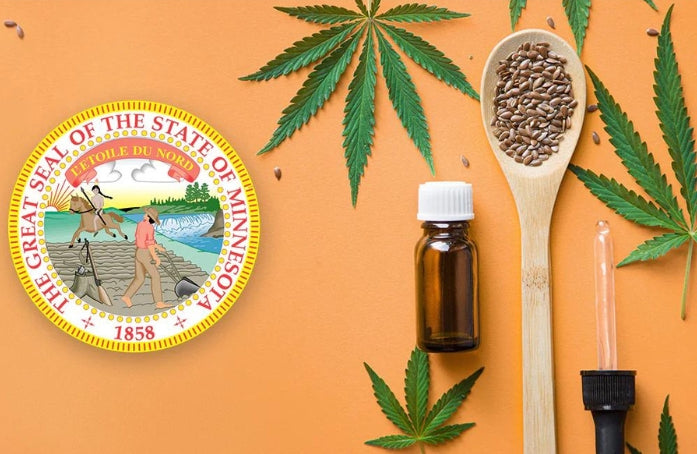The law was signed last December, but since then, there has been zero progress in new research about a better scientific understanding of the health effects of cannabis.

One of the best yet worst things that can happen to a hotly contested and debated issue is for politicians and the machinery of regulatory bureaucracy to latch on to it. Such is the case for whether or not to end the federal prohibition of cannabis in America. With Minnesota becoming the 23rd state to legalize adult-use marijuana last week, there is mounting political and economic pressure on the President and Congress to finally end the almost century-long ban on marijuana.
Furthermore, with President Biden’s popularity at an all-time low, he could use a historic and culturally transformative win like legalizing recreational cannabis to bolster his hopes for a second term. However, despite poll after poll demonstrating strong support for marijuana legalization by a majority of Americans, the President remains reticent to fully endorse a reversal of America’s drug policy regarding cannabis.
With that said, he has shown glimpses of a potential shift in the White House’s attitude toward at least entertaining the notion of more research on the potential health benefits of marijuana and even issued pardons for all prior federal offenses of simple possession of marijuana last October.
Likewise, he also instructed the Secretary of Health and Human Services and the Attorney General to initiate a review of cannabis scheduling under the Controlled Substances Act with a hint that a rescheduling of the plant may be on the legislative table for his Administration.
While the largely “window dressing” pardons and scheduling conversations are viewed mainly as positive gestures and steps in the right direction by legalization advocates, the one actual piece of legislation that did give many in the pro-cannabis lobby a potential measure of hope was the Medical Marijuana and Cannabidiol Research Expansion Act that the President signed into law last December.
The law purports to provide approval and funding for new marijuana research projects that could ultimately lead to a rescheduling of cannabis and potentially much-needed tax relief for the industry and other federal reform down the road. However, as first reported by MJBizDaily, the program has yet to register a single new project six months into its existence. In addition, none of the new applications for producers of research-grade cannabis have received approval under the new law.
One of the more perplexing and suspicious provisions of the measure, according to Nora Volkow, the director of the National Institute on Drug Abuse (NIDA), is the fact that the U.S. Drug Enforcement Administration (DEA) is the government agency in charge of approving new research as opposed to less-biased health and science officials.
After all, one of the DEA’s primary directives is funding and overseeing the country’s nationwide effort to prohibit the illegal cultivation and sale of marijuana. For organizations like NIDA, which has supplied cannabis and funding to researchers for decades, the issue is a delicate one from a critical perspective.
Along with supervising prohibition enforcement, the DEA also oversees federally approved cultivation of cannabis used for research purposes. So while Volkow and her associates may question the legitimacy of having the top “cannabis cop” supervising new research that may lead to legalization, they must also maintain a good working relationship with their primary gatekeeper.
To her credit, Volkow maintains an objective and patient outlook, noting it is simply too soon to tell how the agency will choose to wield its power. “Studies on cannabis and other scheduled substances are critical, and NIDA welcomes efforts to facilitate the process of obtaining a DEA registration to conduct research on these substances. As we do not yet know how the DEA will implement the new law, at this time, we cannot comment on the impact it will have on research,” she said.
"Studies on cannabis and other scheduled substances are critical, and NIDA welcomes efforts to facilitate the process of obtaining a DEA registration to conduct research on these substances. As we do not yet know how the DEA will implement the new law, at this time, we cannot comment on the impact it will have on research.”
- Nora Volkow, the Director of the National Institute on Drug Abuse
However, other critics are not as positive and forgiving in their assessment of the new law and its impact on the rescheduling/legalization discussion. One of those voicing disappointment is Sue Sisley, an Arizona-based physician and principal investigator on a U.S. Food and Drug Administration-approved clinical trial involving cannabis.
Sisley’s Scottsdale Research Institute is one of only eight research organizations permitted by the DEA to produce cannabis for scientific purposes. Curiously, all eight entities applied long before the new bill took effect. Since that time, the DEA has not approved a single new producer.
In an email concerning the new law, Sisley said, “If you’re asking, ‘Has the bill greased the wheels for research?’ – I don’t think anybody can endorse that. In fact, we have not seen any benefits in (the) velocity of marijuana research from this new law. And I question whether the law had any value.”
"If you’re asking, ‘Has the bill greased the wheels for research?’ – I don’t think anybody can endorse that. In fact, we have not seen any benefits in (the) velocity of marijuana research from this new law. And I question whether the law had any value.”
- Dr. Sue Sisley, Principal Investigator for the Scottsdale Research Institute
While much fanfare followed President Biden’s signing of the new research legislation, it appears now that the Administration may have pulled a fast one on cannabis advocates and stakeholders. Instead of opening the floodgates to further research and a potential pathway toward legalization, the true purpose of the legislation may have been to keep the door firmly shut on expanding knowledge concerning the scientific value of marijuana.
As Shane Pennington, a cannabis policy attorney and one of the law’s loudest critics, said, “No one realizes how bad that research bill is. Marijuana is on lockdown. You are giving authority over cannabis science to the biggest enemies of cannabis science who have ever existed on planet Earth.”
"No one realizes how bad that research bill is. Marijuana is on lockdown. You are giving authority over cannabis science to the biggest enemies of cannabis science who have ever existed on planet Earth.”
- Shane Pennington, Cannabis Policy Attorney
Regardless, the battle to end the prohibition of cannabis will continue despite the shortsightedness of politicians and bureaucrats. In just ten years, almost half of the states have legalized marijuana for adult use, and 80% have some form of medical marijuana. The realization of full federal legalization is now just a function of time.
History will look back at this time and most likely chuckle at the amount of energy and resources humans dedicated to banning a flower while bombs rained down on cities from Kyiv to Damascus.




























